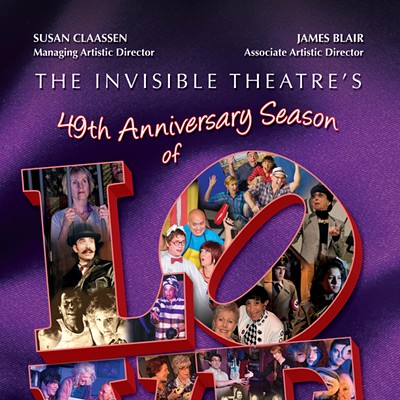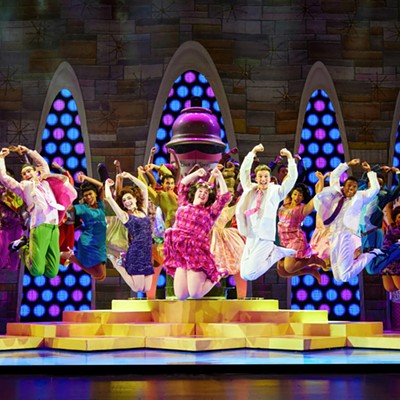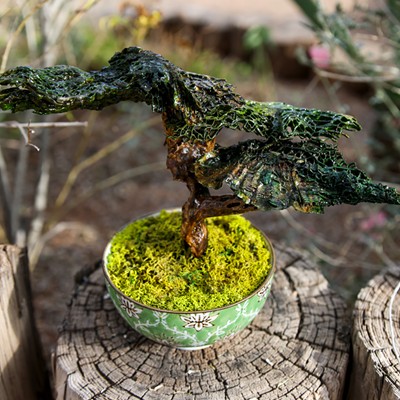The 2003 Tony Award for best play went to "Take Me Out," about a professional baseball player who decides to come out at the height of his career.
I mention Richard Greenberg's drama, which is set mostly in a locker room, because of its exquisite title. Like the play, the title has multiple meanings, from "kill me" to "pull me from the game" to "ask me on a date" for starters.
I got to thinking about titles after seeing the latest offering from Invisible Theatre, a romantic comedy directed by Gail Fitzhugh that could have used more romance and more comedy. The two main characters are Stella and Lou, so playwright Bruce Graham thought long and hard and decided to call it "Stella and Lou."
The title is a failure of imagination, rather like the play itself, a prosaic effort about whether these two lonely souls in their 60s should take another shot at love. Will the longtime friends open their eyes and their hearts to each other or will they go their separate ways?
Lou (Roberto Guajardo)is the generous, disheveled owner of a South Philadelphia bar called—what else?—Lou's Bar. His wife died a couple of years back and, without this saintly woman by his side, he's half dead and totally cool with that.
The nurse Stella (Molly McKasson), on the other hand, is full of energy and eager to jump back on the merry-go-round of love.
Tired of pussy-footing around, she figures she'll be brave and ask the weary widower to take her out. If she can't break through to the closed-down Lou, she's moving to Florida. Either way, she's gonna get some sunshine in her life.
But Lou plays hard to get, saying no and no and no to Stella's offer of a fun night in Atlantic City. If Stella's gonna get her groove back, she's gonna have to do it without him.
And so we listen to the lovely Stella basically beg for a date (apparently Lou is the only man in Philadelphia). Their conversation is interrupted now and then by Donnie, a hard-drinking customer (nicely played by David Weynand) who is freaking out about his upcoming wedding.
As Lou, Guajardo is saddled with a sad sack character who never comes fully to life. In his hands, Lou is never boring. But he's not exactly interesting either.
McKasson is more successful as the vivacious Stella. Ultimately, there's just not enough going on in Graham's play, which struggles to sustain our interest while Lou decides whether to live a little.
You know what Lou will do, of course. But his inevitable response to Stella's charm offensive is literally the last line in "Stella and Lou."










